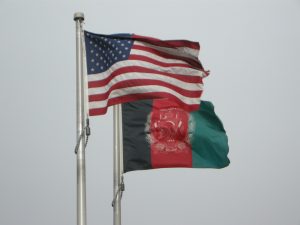The top U.S. general for the Middle East said Tuesday that the intelligence suggesting that Russia may have paid Taliban militants to kill American troops in Afghanistan was worrisome, but he is not convinced that any bounties resulted in U.S. military deaths.
Gen. Frank McKenzie, the head of U.S. Central Command said in a telephone interview with a small group of reporters that the U.S. did not increase force protection measures in Afghanistan as a result of the information, although he asked his intelligence staff to dig into the matter more.
“I found it very worrisome. I didn’t find that there was a causative link there,” said McKenzie, who is the first Pentagon official to speak publicly at length about the issue. He warned, however, that Russia has long been a threat in Afghanistan, where there have been many reports that it has backed Taliban fighters over the years with resources and weapons.
According to U.S. intelligence officials, information that Russia offered bounties to Taliban militants for killing American troops was included in an intelligence brief for President Donald Trump in late February. The White House, however, has denied Trump was briefed at that time, arguing that the intelligence was not credible enough to bring to his attention.
McKenzie said that while he could draw no direct link between any potential payments and U.S. casualties, it’s common that intelligence is not definitive.
“We should always remember, the Russians are not our friends,” said McKenzie, who is traveling in the Middle East. “They are not our friends in Afghanistan. And they do not wish us well, and we just need to remember that at all times when we evaluate that intelligence.”
He said there was no need to beef up security for troops there because the U.S. already takes “extreme force protections measures” in Afghanistan. “Whether the Russians are paying the Taliban or not, over the past several years, the Taliban have done their level best to carry out operations against us.”
Just days after the February intelligence briefing, the U.S. signed an agreement with the Taliban, mapping out the withdrawal of American forces from Afghanistan by May 2021. That date would be nearly 20 years after American forces invaded the country after the Sept. 11, 2001, attacks on the U.S. by al-Qaeda militants.
Trump had repeatedly said he wants to have all U.S. forces out of Afghanistan. His call in May for a quick exit, fueled speculation that he wants troops out by the November election, as part of his vow to end U.S. involvement in what he calls “endless wars.
The U.S. pulled several thousand troops out this year, and now has about 8,600 there. Additional troop withdrawal is contingent on the Taliban’s commitment that extremist groups, such as al-Qaida and the Islamic State group, not be able to use the country as a base to carry out attacks on the U.S.
Asked about the potential for pulling more U.S. troops out, McKenzie said he still does not believe the conditions allow for a significant reduction yet.
By Lolita C. Baldor for the Associated Press

































